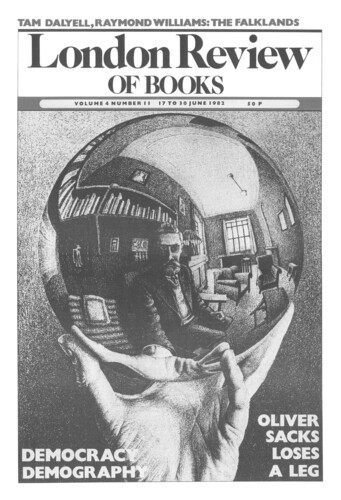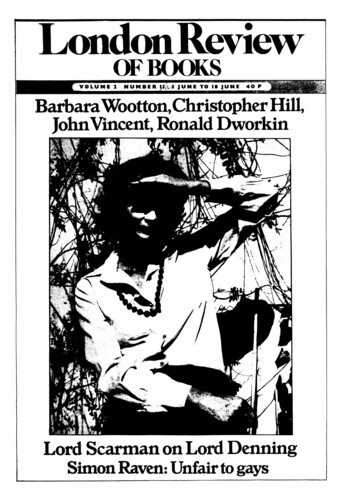Rich and Poor in the Ancient World
Fergus Millar, 17 June 1982
‘When Herakleides was badly received by the citizens and was subjected to a storm of protest, he induced Hippon, one of the demagogues, to urge on the people to a distribution of land, on the grounds that equality of property was the source of freedom, and poverty the source of slavery for those without possessions. But the people, like men making a sudden attempt to stand up after the long illness of tyranny, and to play the part of free men at the wrong moment, on the one hand failed in their undertakings and on the other hated Dion for his attempt to act like a doctor and keep the city on a strict and moderate regime.’ So writes Plutarch, in his biography of Dion, describing a moment in the turbulent politics of Syracuse in the 350s BC, when the tyrant Dionysius II had lost control, and the opposition at once divided between Dion, the friend and pupil of Plato, and those who sought the restoration of full democracy. Plutarch’s typically brief and tantalising narrative also allows us here to catch a glimpse of a political ideology, openly expressed in an ancient Greek city, which saw an incompatibility between the fact of economic inequality and the effective exercise of political freedom. A similarly explicit expression of such an ideology would not be easy to find elsewhere. But from the sixth century BC to the first we do have a mass of evidence – or at least an accumulation of items of narrative evidence – for an overt, vigorous and conscious class struggle in the Greek cities, in which the temporary dominance of one class could often only be achieved by violence, frequently with the aid of outsiders.


